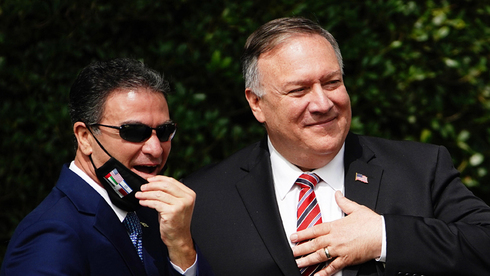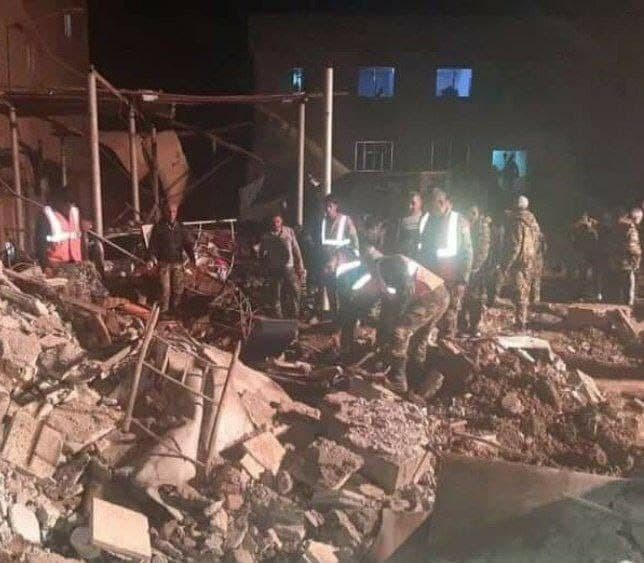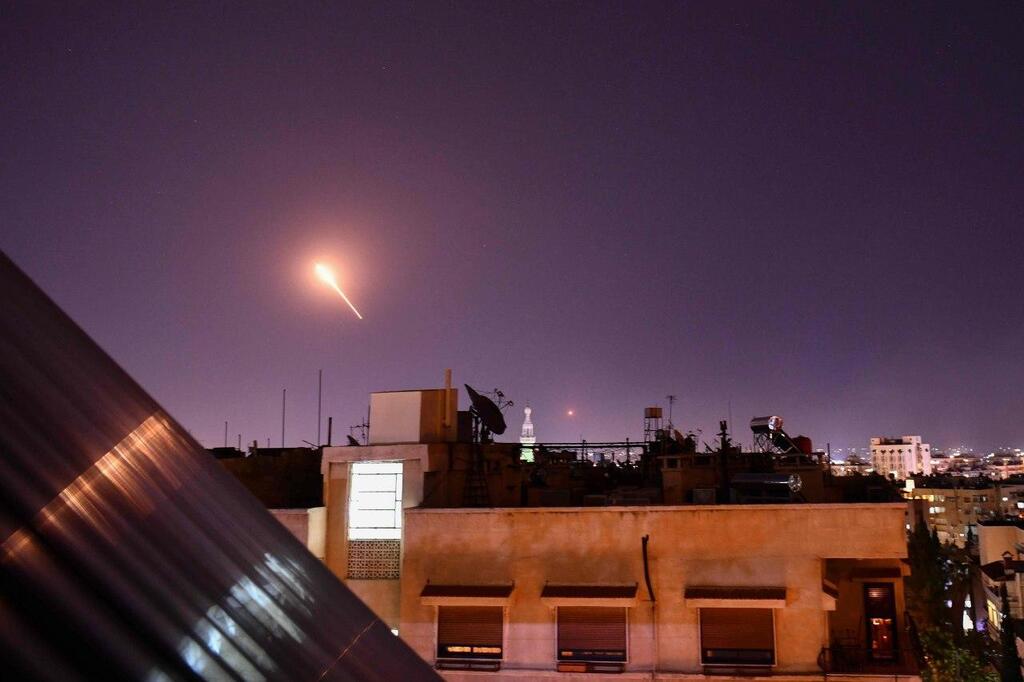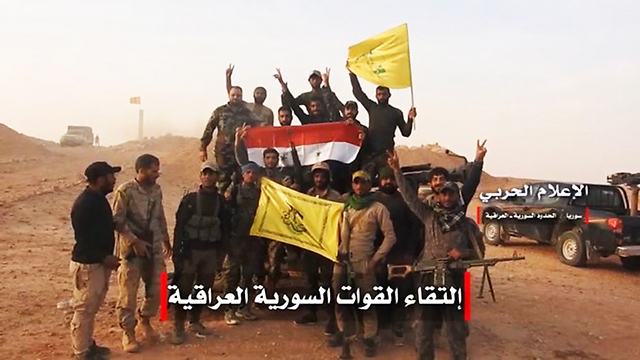A senior U.S. intelligence official says Israel carried out airstrikes in Syria overnight using intelligence provided by the United States -- a rare incidence of publicized cooperation between the two countries over choosing targets in Syria.
The official said the strikes targeted a series of warehouses that were being used in a pipeline to store and stage Iranian weapons.
The official said the warehouses also served as a pipeline for components that support Iran's nuclear program.
The U.S. official, who requested anonymity to speak about sensitive national security matters, said Secretary of State Mike Pompeo discussed the airstrike with Mossad chief Yossi Cohen at a public meeting in popular Washington restaurant Café Milano on Monday.
4 View gallery


Mossad chief Yossi Cohen and U.S. Secretary of State Mike Pompeo during a meeting at the White House
(Photo: AFP)
Dozens of fighters were killed or wounded, according to an opposition war monitor.
Syria’s state news agency SANA said the strikes hit areas in and near the towns of Deir el-Zour, Mayadeen and Boukamal along the border with Iraq. An unnamed military official was quoted as saying Syrian air defenses responded to the incoming missiles. It gave no further details.
An opposition war monitor reported at least 18 strikes in Deir el-Zour and along the border with Iraq, saying several arms depots were hit.
Britain-based Syrian Observatory for Human Rights said 40 people were killed, including nine Syrian troops, and the rest were Iran-backed fighters. It said 37 were wounded.
"They burnt Iranian positions in Deir el-Zour," said Omar Abu Laila, a Europe-based activist from Syria’s eastern Deir el-Zour province who runs an activist collective that reports on news in the border area. He recorded at least 16 targeted buildings, warehouses or bases for Iranian, Lebanese and Iraqi militias in the towns of Boukamal, Mayadeen and Deir el-Zour.
The airstrike on Iranian television
Israel has launched hundreds of strikes against Iran-linked military targets in Syria over the years but rarely acknowledges or discusses such operations.
The Observatory said it recorded 39 Israeli strikes inside Syria in 2020 that hit 135 targets, including military posts, warehouses or vehicles. In those attacks, at least 217 people were killed, mostly Iranian-allied militiamen, according to the Observatory.
The strikes come at a time of heightened tension in the region in the final days of U.S. President Donald Trump’s administration.
Many fear retaliation for the U.S. killing of Iranian commander Qassem Soleimani last year may come before Trump leaves office, or that conflict could erupt to scuttle efforts by Joe Biden’s incoming administration to negotiate with Iran.
Israel views Iranian entrenchment on its northern frontier as a red line, and it has repeatedly struck Iran-linked facilities and weapons convoys destined for Lebanon's militant Hezbollah group.
The strikes also come amid intensifying low-altitude Israeli warplane missions in Lebanese skies that have caused jitters among residents and prompted Lebanon to file an urgent complaint to the UN about the violations of its airspace.
Israeli officials have said the overflights are necessary because Hezbollah is violating the 2006 UN resolution that bars it from building up its military capabilities and operating near the Israeli border.






